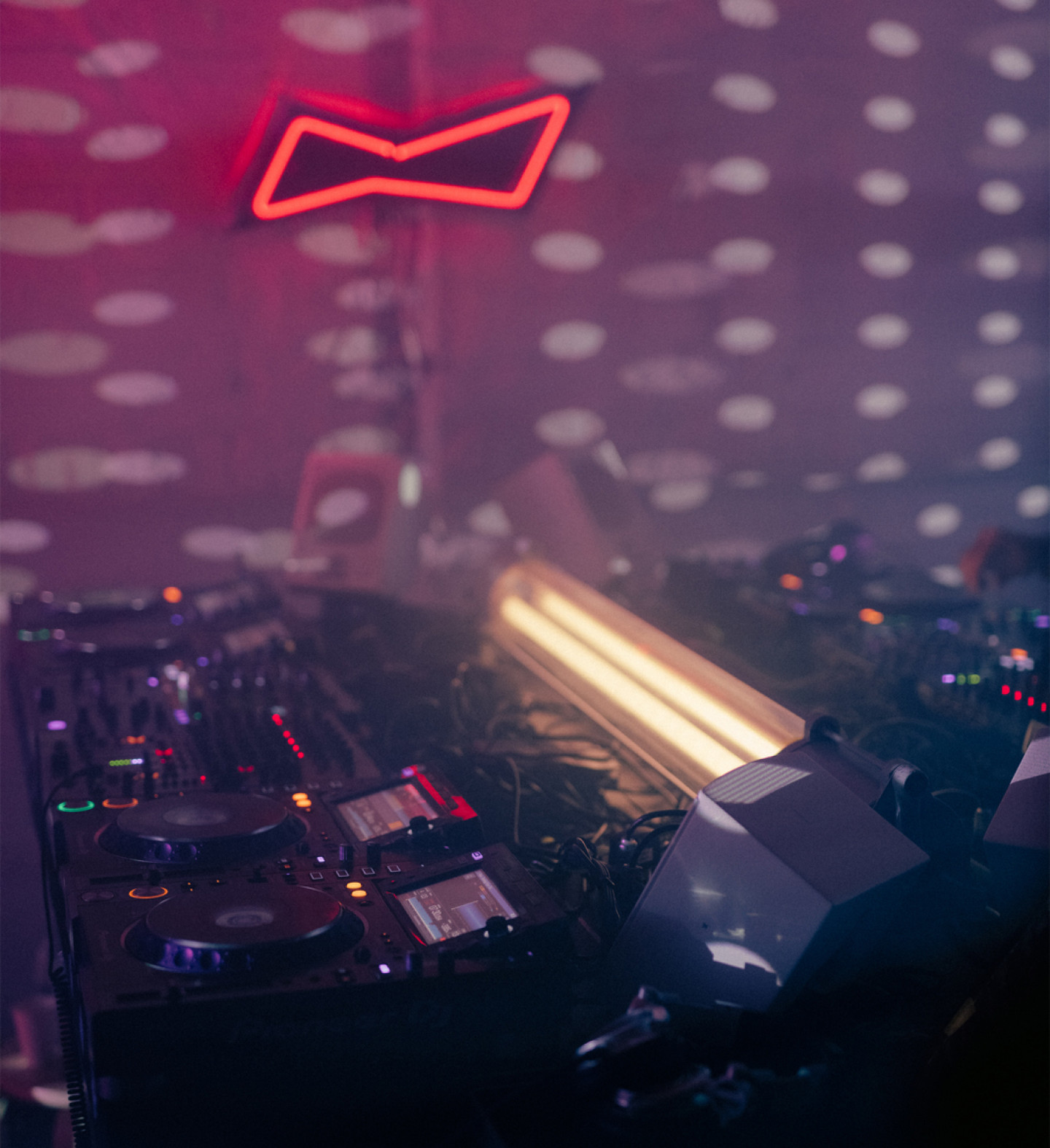One of nightlife’s most essential and heart-warming aspects is its space for connecting through music, physical interaction and the ecstatic surprises those elements lead to when they merge in and around a DJ-booth. With nightlife at a standstill right now, these much needed linkages – between artists, between clubbers, between artists and clubbers – can be hard to hold on to, let alone establish. Well, worry no more. For our upcoming Dekmantel Connects event, all things are put in place to summon the communal spirit, including a number of local stars providing you with innovative back-to-back sets. Before that happens, however, we rang up the artists to talk distance and, more importantly, overcoming distance. First up: bass veterans Nymfo and Rachel Green, and house-by-way-of-hip-hop players Waxfiend and Beraber.
Words by Leendert Sonnevelt
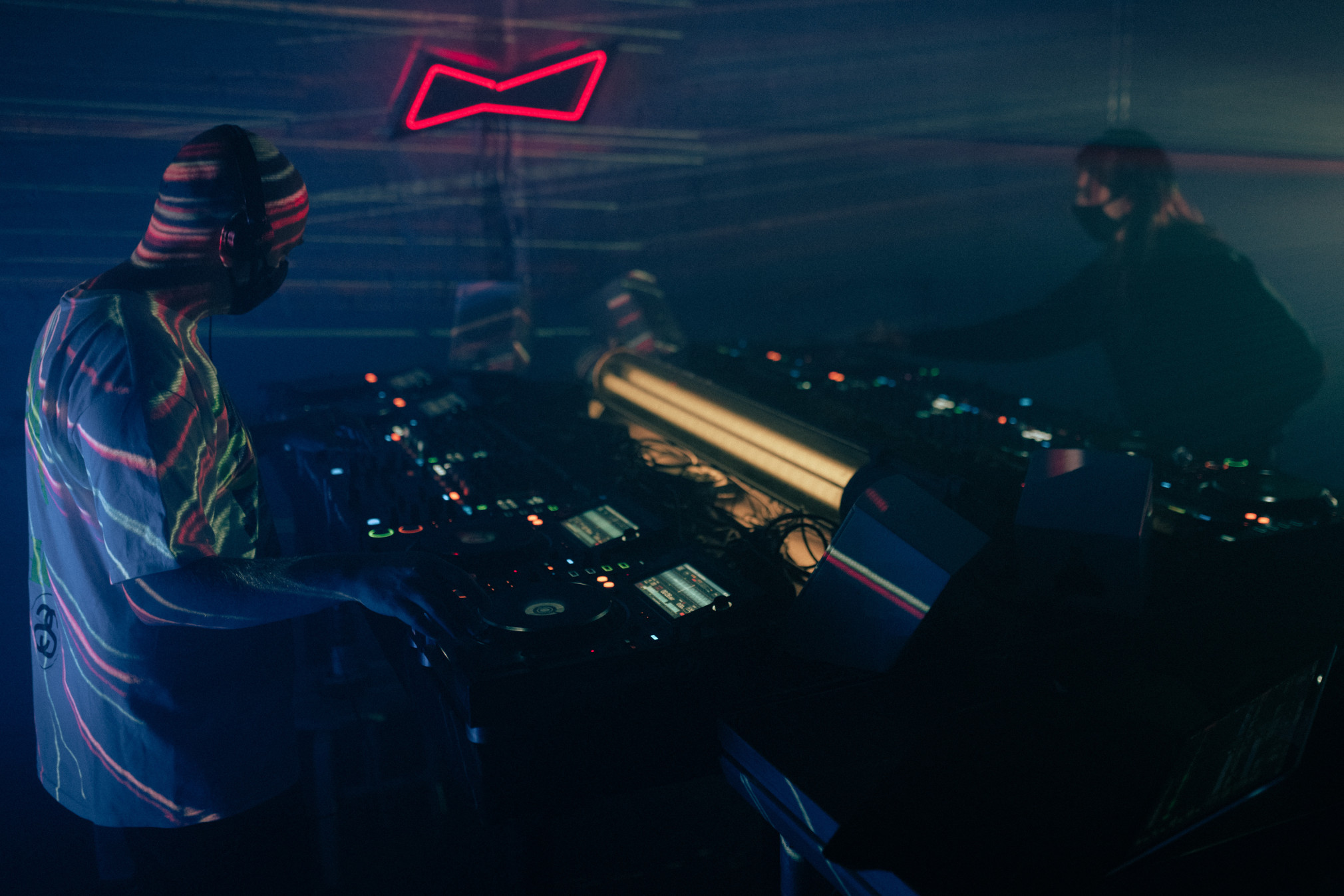
Rachel Green & Nymfo
Rachella, we chatted earlier this year in anticipation of Selectors, just before this whole Covid-19 madness started and the festival was postponed. How have the past months been for you?
Rachel Green: I actually feel really good about what I’m doing right now, even though I’m not playing any shows and I’m not directly making any money. I haven’t been happier with the music that I’ve made in a long time. There is no pressure, and I feel comfortable with that. Of course, there have been ups and downs and the future is uncertain, which is scary sometimes, but other days I feel very creative and I’m happy there’s all this time to put into music. I’m starting new projects and learning a lot about making music.
Nymfo: For me it’s a bit similar; ups and downs. The first few months I really liked being home all the time. Before this time I was playing outside the Netherlands a lot, so at first I really enjoyed being at home and seeing my kids. After three or four months I started missing my friends all over the world and hearing good music in the club. I wrote a lot of new music in the studio – including my first 6-track EP – which I never played in a club. I’m not only a DJ, I also produce a lot, and a crisis forces you to be more creative. I try to see that as a positive thing.
I found out in the past months how important experiencing music in a club can be (and how different hearing club music at home is).
Nymfo: What’s nice about DJing is that you can test new music. When I write tracks, I try them out in the club and after the weekend I go back to the studio to tweak them.
Rachel Green: Being unable to do that has actually made me find a different workflow. I started making less music for clubs, instead suiting the state that I’m in right now.
Nymfo: Ambient is super popular right now!
Rachel Green: Yes, we need it.
Have you tried to stay in touch with your audience or community somehow?
Rachel Green: I’ve noticed there’s a lot of people you meet in clubs but few you actually talk to online. The connection with those few has become stronger because there’s more time for a long call, for instance. I’m not as rushed and I feel more comfortable talking to people online because it’s the only way to go right now.
Nymfo: I feel the same. People are also more honest now about their feelings. A few relationships have gotten better and stronger. Regarding the audience… It’s difficult to connect. I’ve done two livestreams but not I’m not a fan of doing too many. It’s something, but not the same. This one for Dekmantel is interesting because it’s a B2B with Rachella.
Rachel Green: I don’t always feel comfortable doing livestreams. In a club setting I feel more anonymous, whereas livestreams are very much about you.
"There are three different styles of drum & bass that we both really like and want to combine. We want to go into them in-depth, almost giving a bit of an... education?" - Rachel Green
Let’s talk about your joint Dekmantel Connects set. What’s different?
Nymfo: It’s new for us too!
Rachel Green: We’re playing on two different setups, which I’ve never done before. During the test run we messed around and Bardo replaced – stole! – a drop I was building towards. I think from that moment we realized we are going to have some fun with this. I could easily interfere with or join any mix Bardo is doing, while during a normal B2B it’s more like you take turns. There are some small things you need to remind yourself of when playing on two mixers but once you’ve got the hang of it, it becomes an extra tool to play around with. That’s pretty cool.
Have you played together before?
Both: No.
Nymfo: We’ve known each other for a long time, though. This week we got together to prepare, and the funny thing is that we’re on the same level. We browsed through each other’s selection, and it really fits.
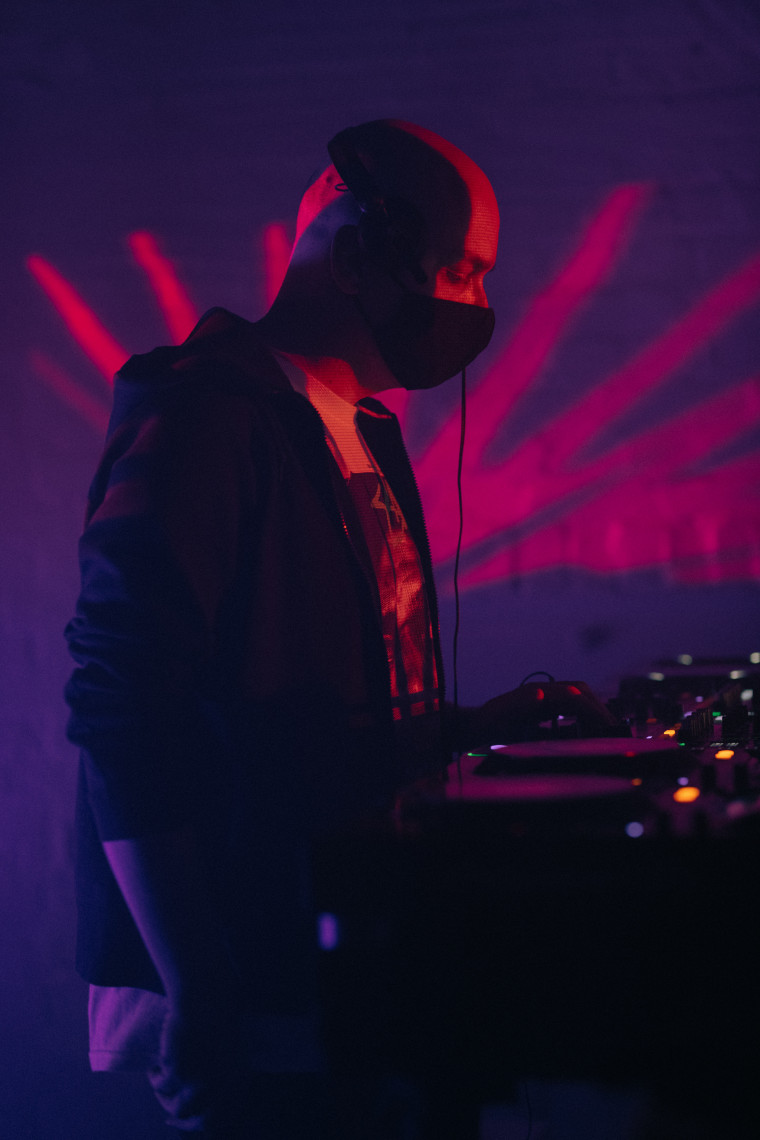
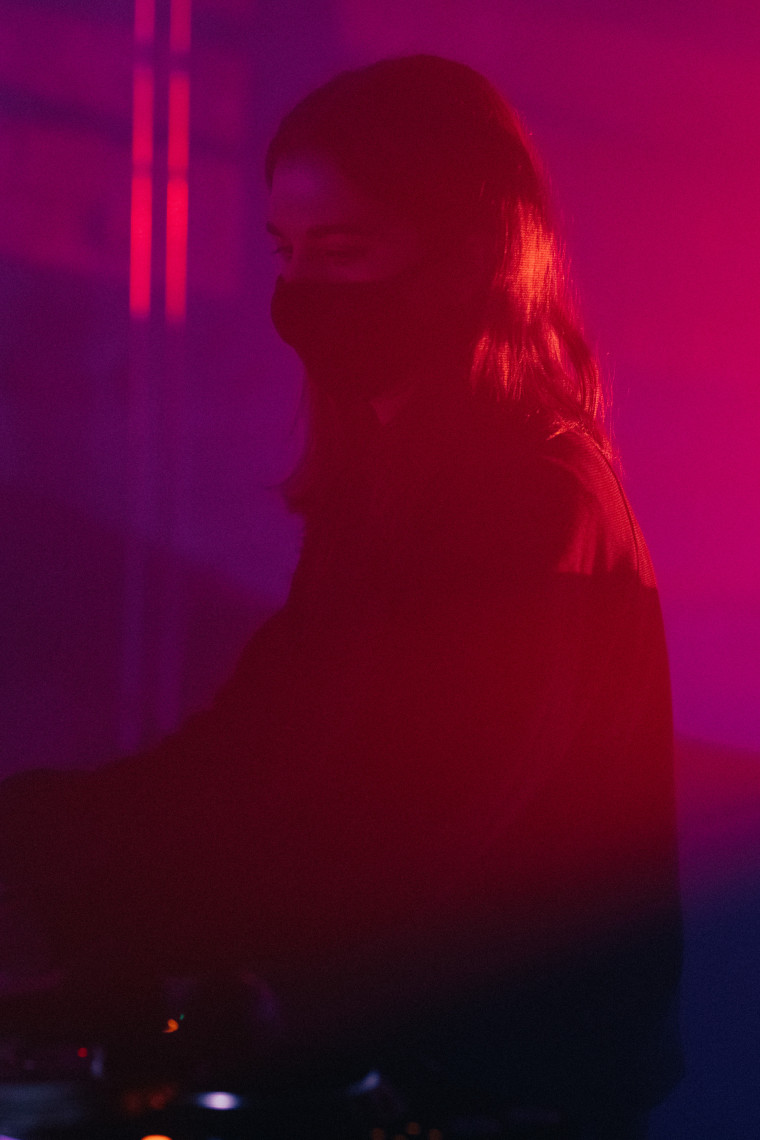
So, what is that level?
Nymfo: A little bit jungly and old school. For most DJs on the Dekmantel lineups, drum & bass or jungle is not the core component. There’s two styles of drum & bass; the more commercial and poppy stuff, and the more underground things that we really like to play and support (both old and new).
Rachel Green: We have a nice storyline. There are three different styles of drum & bass that we both really like and want to combine. We want to go into them in-depth, almost giving a bit of an… education? That’s not the right word, but there’s a lot of knowledge from Nymfo’s side, who’s been doing this for so many years. And we’ll mix that with newer things.
Nymfo: More and more people are starting to play drum & bass in their sets. It always used to be very separated – drum & bass seemed to be the underdog – but things are coming together.
What do you appreciate about each other’s sound?
Rachel Green: I find Bardo [Nymfo] very consistent; I can expect new music from him multiple times a year and there’s a certain energy level in all his music that I really like. I can hear that he’s been there from the beginning of drum & bass, and that’s a sound that I – even though you evolve – have always loved. Also, he is an excellent DJ. He knows his build-ups, but he also knows when to give people some air and pick it up again after.
Nymfo: That’s very sweet. What I like about Rachella is that she keeps it real. She can play different things, but it’s always the real sound and she hasn’t chosen the easy road, even though she could have. When she plays different genres, at different BPMs, you can still hear that it’s her – that same energy and colour.
"More and more people are starting to play drum & bass in their sets. It always used to be very separated – drum & bass seemed to be the underdog – but things are coming together." - Nymfo
Is there anything you don’t know about each other?
Rachel Green: Yes, Bardo, did you ever in your career have a moment where you were done with it?
Nymfo: I’ve never felt done with it, but I do always need new goals. Now that I’ve ticked a lot of boxes – releasing on different labels and playing all over the world – I feel like I’ve done what I really wanted to do. Now, I focus on new things for the future. When I started having kids that changed things too; my focus is more on studio work now, and producing with/for other people in different genres. That’s something I enjoy, also the more commercial things. If you would’ve asked me the same question 10 years ago, I would have just said: ‘drum & bass’! It all started as a hobby, then it became a full-time career, and now it’s becoming more of a hobby again, while I focus on other music projects. It’s important to develop.
Imagine the clubs were to open next weekend. What’s the one track you’d definitely play for a sweaty crowd?
Rachel Green: A track I slept on and found during Coronavirus Bandcamp days. Future Cut - Horns (Gremlinz & Overlook Remix) Label: Droogs, release 2017
Nymfo: That would be one of my own Sting Blade releases on Metalheadz, which I haven’t heard on vinyl in a club yet. Can’t wait to hear – and feel – this on a proper soundsystem.
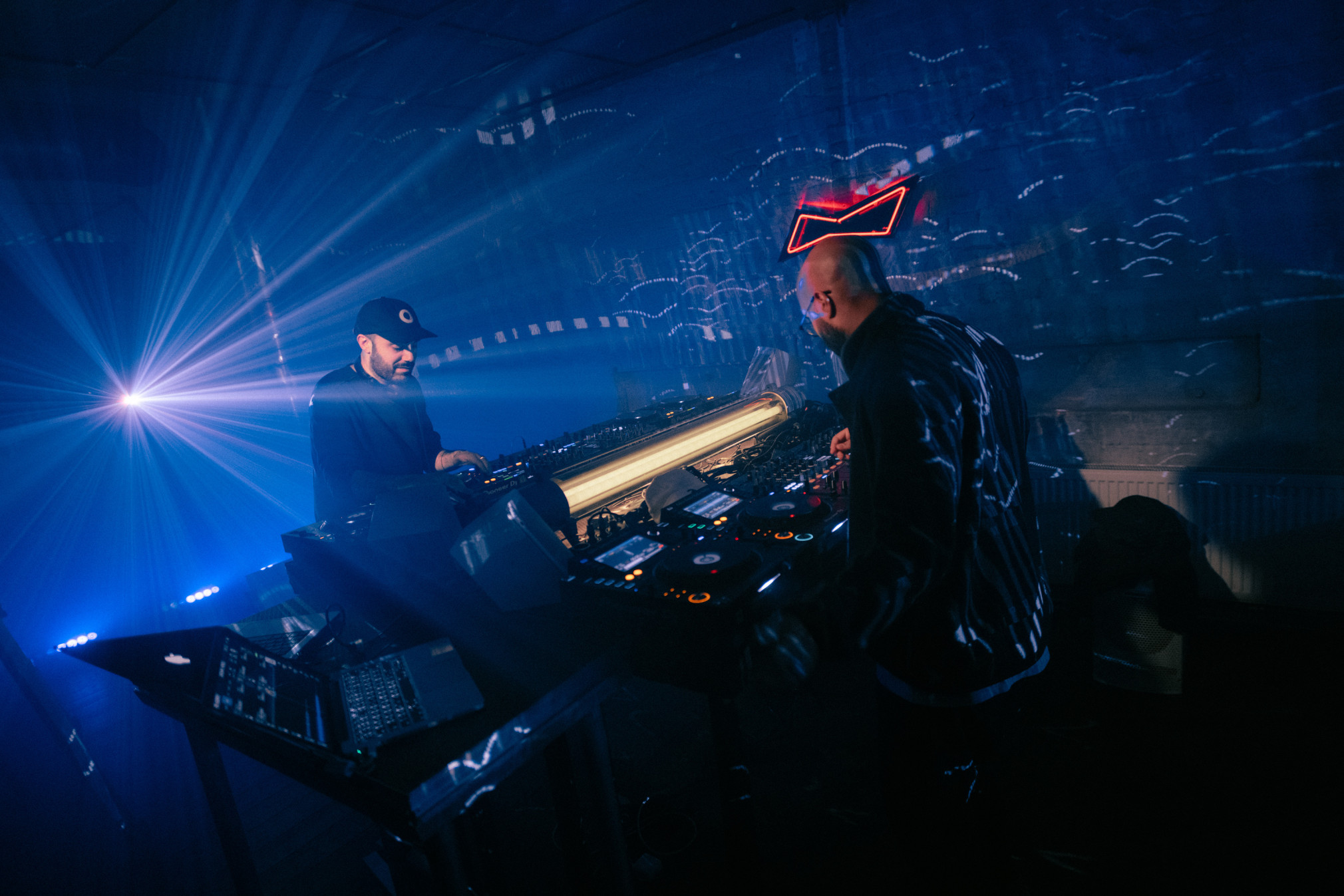
Waxfiend & Beraber
Hey Wesley! Hey Baris! Why do you think the two of you were asked to do a Dekmantel set together?
Waxfiend: I was asked by Dekmantel to propose some DJs, and something in Baris [Beraber]’s music spoke to me the very first time I heard it. I didn’t even know he was from Holland; we kind of met through Instagram. So, I saw this as a dope opportunity to play together.
Have you met in real life before?
Waxfiend: Yes, actually we did, way back…
Beraber: I’ve known Wesley [Waxfiend] as a hip-hop and dancehall DJ since I was 15 or 16. During that time we never truly met, but here we are 15 years later. It’s a nice combo because we come from a similar background. It’s hard to pinpoint exactly what it means to listen to house music with a hip-hop background, but it seems like we like the same things in house.
Waxfiend: Over the past years I’ve learned that there are quite a few DJs who used to play hip-hop and now gravitate towards house. Maybe because you come to the essence of hip-hop, and then find that in other genres as well. That essence seems to be a certain soul or rawness, often sample-based, and it can attract you in different genres.
Wesley, what is it that struck you in Beraber’s music?
Waxfiend: It’s difficult to explain. I love the use of percussion, as well as the warm instrumentation and choice of sounds. I like music that can fit multiple occasions; background music when you’re cooking, which can also be played at a party.
And vice versa?
Beraber: Hard question! I only found out that Waxfiend is into house when he recently played my tune in his mixtape. It hasn’t been that long, right?
Waxfiend: Right. I’ve flirted with it before, but it was a different kind of house music.
Beraber: Ever since going to his parties years ago, especially Jamrock, I’ve held Waxfiend in high regard as a good and technical DJ. The kind of house music he’s into is quite niche and underground. Sound-wise, we’re kind of in the same lane now.
Both of you have been part of nightlife for years. How have the past months been for you?
Waxfiend: Different! There’s definitely things I miss.
Beraber: I became a father a little over a year ago, so this whole Coronavirus thing started when I was still living in a bubble, and I was kind of used to it already. I miss going out and DJing, but probably less than most. I can still go to the studio and produce music, there’s more time for that now.
"I'd love to play the music I currently listen to at home in a club setting. Hopefully this lockdown situation has led to that being possible and people being more open-minded, so we can have a party together with a bit of a radio show vibe." - Beraber
Tell me about your recent releases!
Beraber: I released a track called Gloom on Carista’s label, United Identities, and I’m happy to be a part of the first vinyl compilation she put out. Waxfiend also played this track in his Wax On mixtape – there you go, full circle.
Has the music you listen to changed because of the circumstances?
Waxfiend: Yeah. I don’t listen to as much club music – with adlibs-based flows and 808s – as before. Being a professional DJ, it can normally be difficult to find a space to dive into genres you won’t really be playing. For instance, I’ve been diving into a lot of jazz, out of my own interest. There’s no need to be on top of the latest club bangers now, and I love listening to music with a different goal. I wouldn’t call myself a producer yet but I’ve also had time to learn in that area, which is great.
Beraber: There’s maybe 40 or 50 percent overlap between what I listen to at home and what I’d play in a club, which is probably more than for most DJs. Now, I get to spend way more time listening to slow and vibey stuff and losing myself in albums for a change.
It seems like you’ve been getting to know each other a little better. Is there anything you don’t know about each other?
Beraber: Yes, Wesley, you’ve been a DJ for so long. What took you so long to get into house music?
Waxfiend: Maybe it was fear, to be honest. I used to listen to house music before I listened to hip-hop: Thunderdome, Hellraiser... I loved it, but at a certain point it felt like people of my skin colour were not so welcome in that scene. I was young and whether that’s all true or not, it put me off house altogether. Hip-hop grabbed me instead, and especially certain types of it. I was listening to a lot of Rawkus Records [home to Mos Def, Talib Kweli, Common, et al.] and Premier productions, that kind of stuff. Every now and then house came through and there were some subgenres that piqued my interest, but house really started to speak to me when I started to discover house music from Africa, specifically South-Africa. This happened at a point in my life when I was actually open to it and brought me back to where house music comes from. Then, I found out: I might actually be pretty welcome in this culture! On a personal level, I’m at a point where I enjoy more freedom of expression and less thinking in boxes. House music fits that mindset perfectly.
Beraber: I think we come from a similar hip-hop background. When I came to Amsterdam, a lot of people were actually doing both house and hip-hop, whereas to me ‘house’ sounded like a dirty word. I think I was associating the wrong things with it, so it became something that wasn’t for me.
Waxfiend: So when did you discover that it’s for you, too?
Beraber: At first I was buying house with very clear hip-hop influences, like Moodymann. I got these artist names from the liner notes of hip-hop records, looking up who the producers were and finding mostly Detroit DJs. Then, seven or eight years ago, I started going out to different places such as TrouwAmsterdam and through partying started finding a new perspective on house.
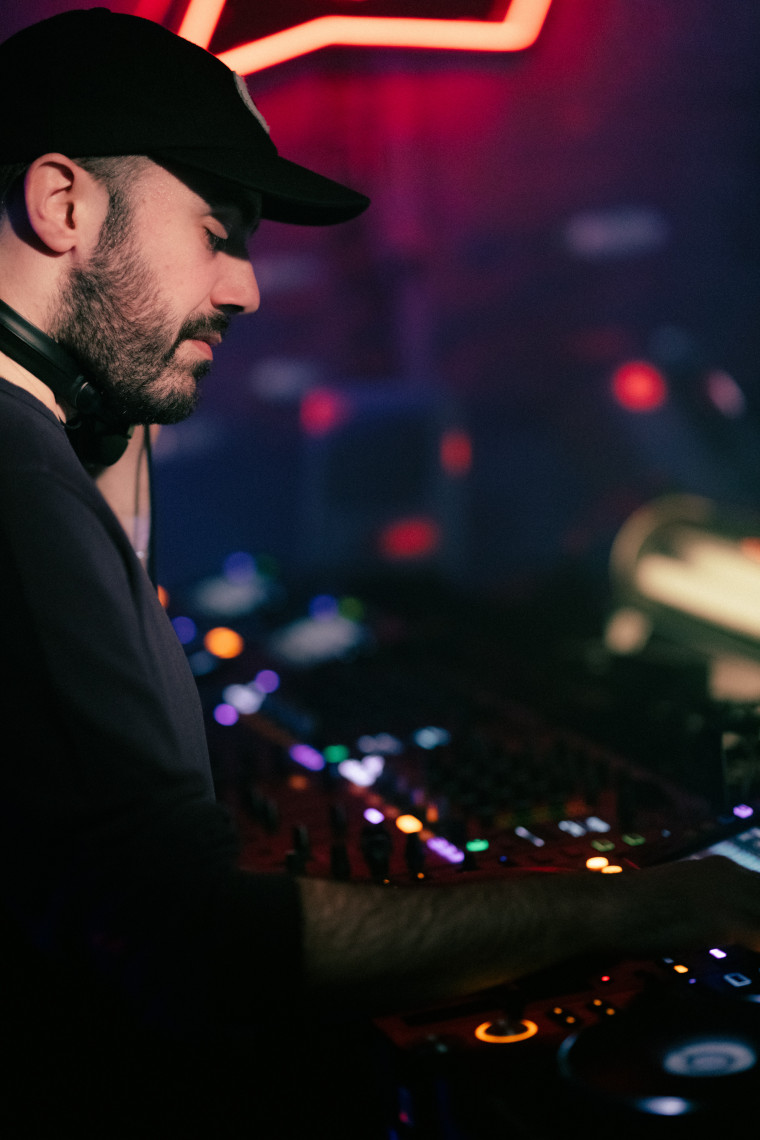
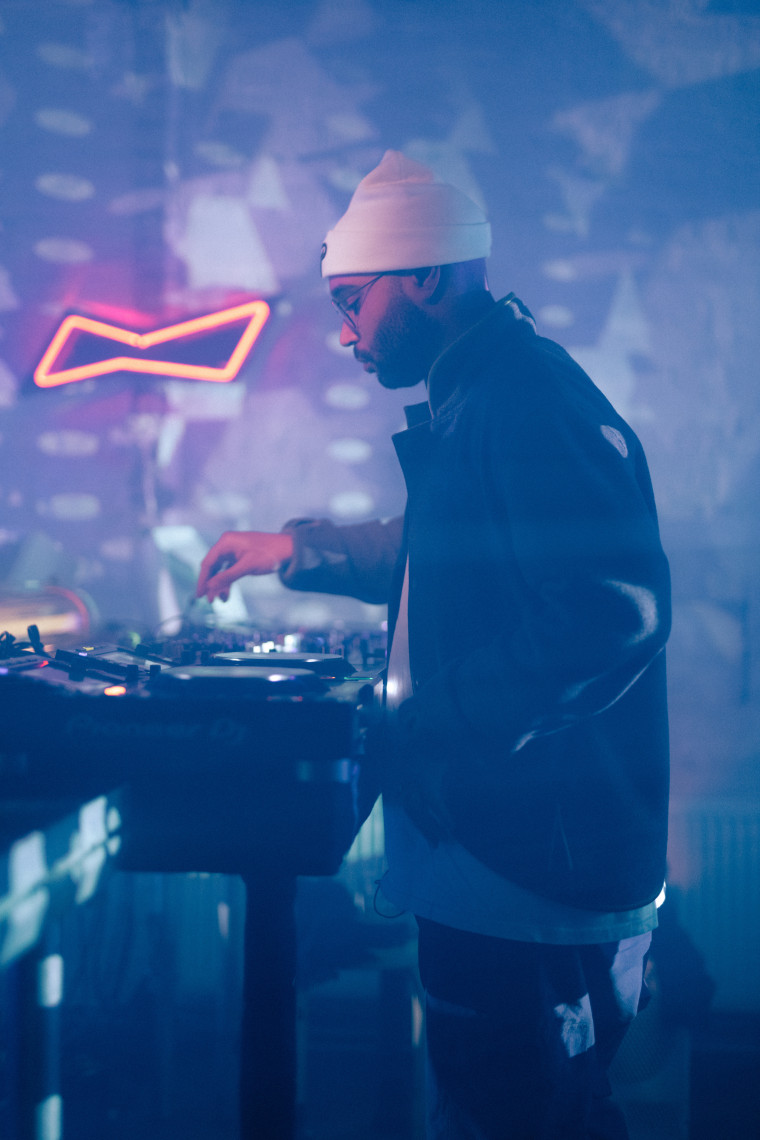
Do you still play dancehall, Wesley?
Waxfiend: Yes, but less than I used to. I still do mixes and the Jamrock events. Back in the days I used to do a two-hour radio show every week, keeping up with all the latest riddims out of Jamaica. Now we have a whole team of young DJs who are much more up to date with dancehall than I am at this point.
Can dancehall still be a part of your sets?
Waxfiend: I think so! I gravitate towards bass-driven music and a certain way in which basslines and vocal samples are used in electronic music (very much dub-inspired), which is taken from reggae. There’s a certain aesthetic, this rawness, to the South-African sounds I’m playing now. The way the percussion hits you is very reminiscent of dancehall. Back in the heights of the Jamrock days, I always played some Lil Silva tunes, or other UK bass, in the middle of those sets, making a blend with the dancehall. There’s definitely an intersection. Recently I discovered Mark Pritchard, who does crazy electronic productions some people would categorize as IDM [Intelligent Dance Music]. The way he uses his bass is very UK, but the way his drums are built up is completely dancehall. I like to see those hybrids, and genre lines being blurred.
"On a personal level, I’m at a point where I enjoy more freedom of expression and less thinking in boxes. House music fits that mindset perfectly." - Waxfiend
Are there any tracks you’re dying to play in a club setting?
Beraber: I’d love to play the music I currently listen to at home in a club setting. Hopefully this lockdown situation has led to that being possible and people being more open-minded, so we can have a party together with a bit of a radio show vibe.
Waxfiend: For me, it’s a genre. Amapiano is a new South-African style of house music that’s a hybrid between jazz, deeper house and Kwaito (traditional South-African music). It’s quite mellow; you can play it in a BBQ setting or at a rooftop party, but when that bass hits you feel it. It’s very percussion driven and soulful. I love it and it’s been growing, both in and out of South Africa. Also, I can’t wait to play Gqom music for the Dutch audience. Right now is a fucked up time for it to grow because it can’t go anywhere. Still, I feel that music can travel very far – and people will appreciate it here too – so I really want to give it a platform.
Photos by Tim Buiting
